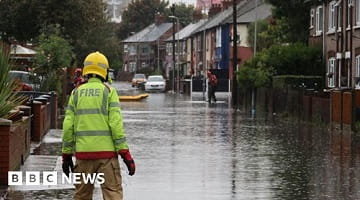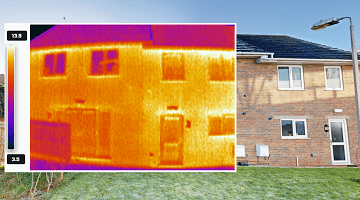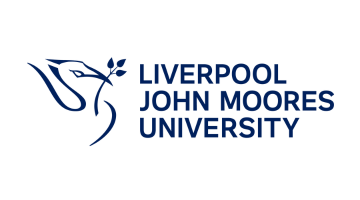Why study this course with LJMU?
- Advance your career while you work with this exciting study pathway
- 6 million investment in developing state-of-the-art teaching facilities at Byrom Street Campus
- Dedicated tutors and a supportive learning environment
- LJMU ranked 16th in the UK for construction, surveying and planning courses (The Guardian University Guide 2025)
- LJMU ranked 8th university in the UK for building degrees (The Times UK University Rankings 2025)
This course is the academic qualification for the L4 Apprenticeship Construction Quantity Surveying Technician Standard (ST0049) and you need to be in employment with a company on an apprenticeship.
The course is aimed at apprentices who are working in construction and are looking to develop into a career as a Quantity Surveyor working for a variety of clients and project types.
About your course
This is a recognised HNC award that will allow you entry to a Degree programme at level 5 (subject to entry requirements). It also gives you a good grounding through the modules into the construction industry and entering the profession as a quantity surveyor.
The course is a 120 credit L4 award that is delivered over 2 years. The modules are delivered over a day in University and with a supervisory team from both the programme and your employer that will manage your progress on the apprenticeship throughout your apprenticeship journey. The programme covers all the subjects needed at L4 to introduce you to the construction industry and being a Construction Quantity Surveying Technician. There are also specific professional competencies and work based learning modules that will help support you to appreciate and understand what it is to be a professional in your field and to apply your Knowledge, Skills and Behaviours (KSBs) into the workplace and the End Point Assessment (EPA).
Deadline for applications: 30th June 2025
Course modules
What you will study on this degree
Further guidance on modules
Modules are designated core or optional in accordance with professional body requirements, as applicable, and LJMU’s Academic Framework Regulations. Whilst you are required to study core modules, optional modules provide you with an element of choice. Their availability may vary and will be subject to meeting minimum student numbers.
Where changes to modules are necessary these will be communicated as appropriate.
Core modules
Your Learning Experience
Excellent facilities and learning resources
We are fully face to face in the delivery of the academic timetable and we provide a wealth of online supporting material through our Virtual Learning Environment, Canvas, and systems like See My Tutor. This enables you to experience a rich and diverse learning experience and engage fully with your studies. Our approach ensures that you can easily access support from your academic tutors, either by meeting them on-campus or via a video call to suit your needs through See My Tutor.
Dedicated personal tutor, plus study skills support
There is a high level of support for students on this course and the needs of part-time students and degree apprentices are thought through. You will be allocated an individual tutor that will support you in all aspects of your apprenticeship, being academic, pastoral and working with your employer mentor. You will have regular tripartite meetings (4 a year) which will help support you through your apprenticeship journey and will discuss your academic and apprenticeship progress supporting your through the programme and to successful End Point Assessment (completion of the apprenticeship).
Assessment varies depending on the modules you choose, but will usually include a combination of exams and coursework.
Assessment varies depending on the specific modules, but will usually include a combination of exams and coursework.
All students perform differently depending on the type of assessment they are asked to do, and so a variety of assessment methods are used. These include exams (open and closed book), coursework (projects, technical reports, portfolios, etc), and presentations (individual and group).
Your tutors will give prompt and constructive feedback via Canvas (our virtual learning environment), face-to-face or in writing.
This will help you to identify your strengths as well as the areas where you may need to put in more work.
Where you will study
This programme is delivered in the Byrom Street complex of LJMUs City Campus. Here you'll find high quality lecture theatres, meeting and seminar rooms plus social spaces and a large café. You will also use the materials and environmental science laboratories and get to use industry standard software and equipment in workshop sessions. The Avril Robarts Library is just minutes away on Tithebarn Street.
Tuition fees and funding
Fees
The fees quoted above cover registration, tuition, supervision, assessment and examinations as well as library membership and student IT support with access to printed, multimedia and digital resources including programme-appropriate software and on campus Wi-Fi.
Financial Support
The University offers a range of scholarships to support students through their studies. You'll find all the information you need on our specialist funding pages, including details of the Student Support Fund and other activities to support with the cost of living.
Additional Costs
In addition to fees, students should also keep in mind the cost of:
- Accommodation
- Travel costs including those for placements, visas and travel for studying abroad and field trips unless paid for by LJMU
- Stationery, IT equipment, professional body membership and graduation gown hire
The University reserves the right to increase tuition fees in accordance with any changes to the maximum allowable fees set by the UK Parliament. In the event of such a change, any fee increase will be subject to a maximum cap of 10% of the total course cost as originally stated at the time of your offer.
Degree Apprenticeships are funded courses, with learning costs being paid to the university by the employer, through the Degree Apprenticeship levy, if a large company, or with the help of the government’s co-investment model, if a smaller company.
If you aren’t already employed by a company that is willing to sponsor you through an apprenticeship, you’ll need to find one. You can do this by regularly checking the Government’s Find an apprenticeship website.
You can also approach an employer yourself to find out whether they would be interested in offering Degree Apprenticeships and ask them to contact us. Our team will be able to explain to them how they can access the correct funding and the next steps.
Entry requirements
Please choose your qualifications below to view requirements
Grades/points required from qualifications: 80
Work out how many UCAS points your qualifications are worth by visiting the UCAS Tariff Calculator.
Qualification requirements
How to apply
Securing your place at LJMU
To apply for this programme, you are required to complete an LJMU Degree Apprenticeship form. You will need to provide details of previous qualifications and a personal statement outlining why you wish to study this programme.
If you aren’t already employed by a company that is willing to sponsor you through an apprenticeship, you’ll need to find one. You can do this by regularly checking the Government’s Find an apprenticeship website.
You can also approach an employer yourself to find out whether they would be interested in offering Degree Apprenticeships and ask them to contact us. Our team will be able to explain to them how they can access the correct funding and the next steps.
Just like any other job application, you’ll go through a recruitment process with the employer. Check out our interview tips to help you prepare for your Degree Apprenticeship interview. You’ll also need to meet the entry requirements to attend Liverpool John Moores University just like any other student. To do this, find your course and make sure you meet the requirements of the particular course associated with your Degree Apprenticeship.
To apply for a Degree Apprenticeship course complete the online application form.
Once you have applied you are required to complete and return a skills scan document that is automatically sent to you upon receipt of your application. The skills scan enables the programme team to carry out an initial assessment of the knowledge, skills and behaviours (KSBs) that you have acquired through your previous experience and study.
Following consideration of your skills scan, you and your employer contact will be invited to attend a meeting with the Programme Leader to further discuss the requirements of the apprenticeship, including the KSBs set out within the applicable Apprenticeship Standard.
If your application is successful, you’ll enter into an employment/apprenticeship contract with your employer which will set out the obligations of all parties involved in the apprenticeship.
Your university life
From accommodation and academic support to clubs and societies. Find out what LJMU has to offer.
Related Links
Talk to our students
Connect with a current LJMU student for advice and guidance on university life, courses and more.
See what our students are saying
At LJMU we want you to know you're making the right choice by studying with us. You can see what our students are saying about their experience with us through their reviews on the following websites:
Related Links
News and views
Browse through the latest news and stories from the university
The university reserves the right to withdraw or make alterations to a course and facilities if necessary; this may be because such changes are deemed to be beneficial to students, are minor in nature and unlikely to impact negatively upon students or become necessary due to circumstances beyond the control of the university. Where this does happen, the university operates a policy of consultation, advice and support to all enrolled students affected by the proposed change to their course or module.
Further information on the terms and conditions of any offer made, our admissions policy and the complaints and appeals process.






















